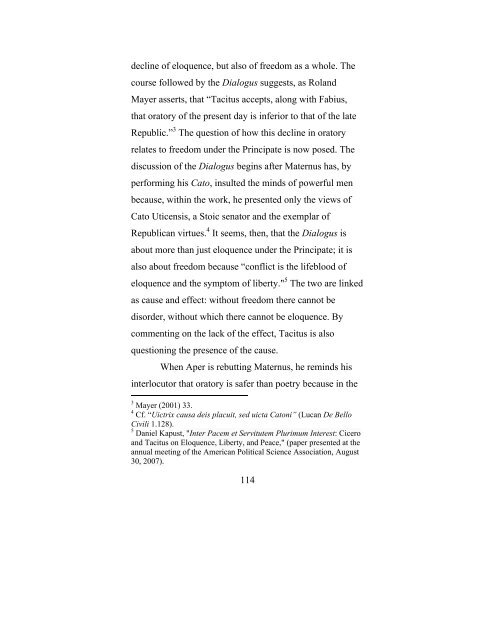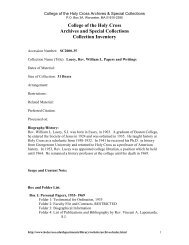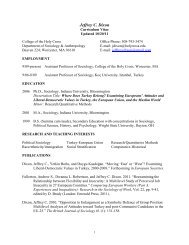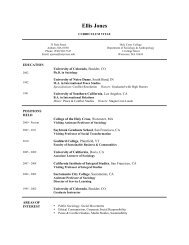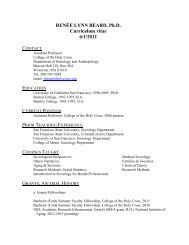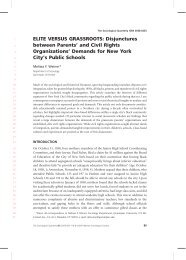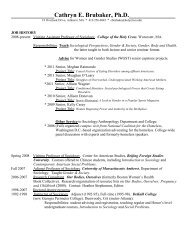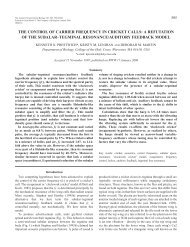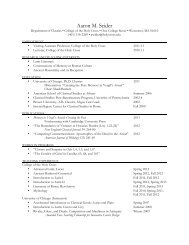Here - Academics - College of the Holy Cross
Here - Academics - College of the Holy Cross
Here - Academics - College of the Holy Cross
You also want an ePaper? Increase the reach of your titles
YUMPU automatically turns print PDFs into web optimized ePapers that Google loves.
decline <strong>of</strong> eloquence, but also <strong>of</strong> freedom as a whole. The<br />
course followed by <strong>the</strong> Dialogus suggests, as Roland<br />
Mayer asserts, that “Tacitus accepts, along with Fabius,<br />
that oratory <strong>of</strong> <strong>the</strong> present day is inferior to that <strong>of</strong> <strong>the</strong> late<br />
Republic.” 3 The question <strong>of</strong> how this decline in oratory<br />
relates to freedom under <strong>the</strong> Principate is now posed. The<br />
discussion <strong>of</strong> <strong>the</strong> Dialogus begins after Maternus has, by<br />
performing his Cato, insulted <strong>the</strong> minds <strong>of</strong> powerful men<br />
because, within <strong>the</strong> work, he presented only <strong>the</strong> views <strong>of</strong><br />
Cato Uticensis, a Stoic senator and <strong>the</strong> exemplar <strong>of</strong><br />
Republican virtues. 4 It seems, <strong>the</strong>n, that <strong>the</strong> Dialogus is<br />
about more than just eloquence under <strong>the</strong> Principate; it is<br />
also about freedom because “conflict is <strong>the</strong> lifeblood <strong>of</strong><br />
eloquence and <strong>the</strong> symptom <strong>of</strong> liberty." 5 The two are linked<br />
as cause and effect: without freedom <strong>the</strong>re cannot be<br />
disorder, without which <strong>the</strong>re cannot be eloquence. By<br />
commenting on <strong>the</strong> lack <strong>of</strong> <strong>the</strong> effect, Tacitus is also<br />
questioning <strong>the</strong> presence <strong>of</strong> <strong>the</strong> cause.<br />
When Aper is rebutting Maternus, he reminds his<br />
interlocutor that oratory is safer than poetry because in <strong>the</strong><br />
3<br />
Mayer (2001) 33.<br />
4<br />
Cf. “Uictrix causa deis placuit, sed uicta Catoni” (Lucan De Bello<br />
Civili 1.128).<br />
5<br />
Daniel Kapust, "Inter Pacem et Servitutem Plurimum Interest: Cicero<br />
and Tacitus on Eloquence, Liberty, and Peace," (paper presented at <strong>the</strong><br />
annual meeting <strong>of</strong> <strong>the</strong> American Political Science Association, August<br />
30, 2007).<br />
114


